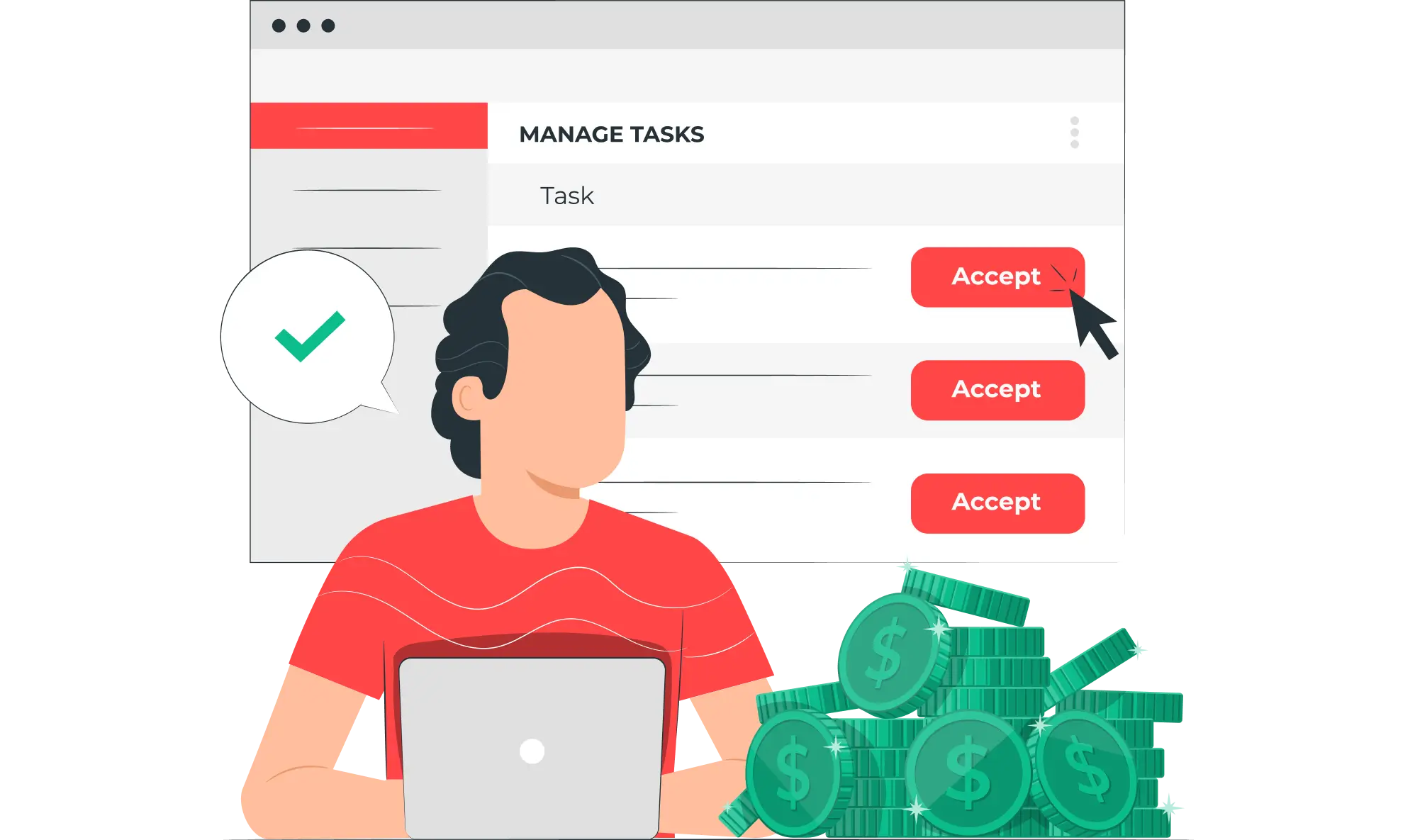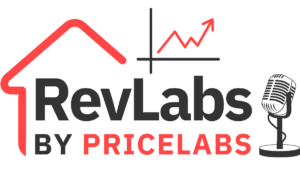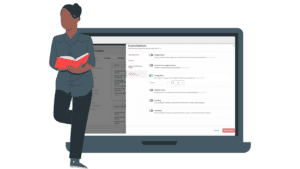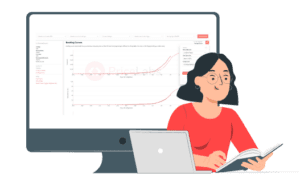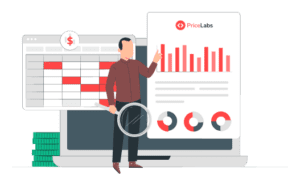Updated: August 20, 2024
The fluctuating demand and intense competition in the Short-term Rental (STR) market require constant attention. Homeowners find it challenging to decide when to increase seasonal vacation rental pricing or how to get more bookings during low periods.
Hence, they need the assistance of a revenue manager to attract more guests. So, let’s find out who the revenue manager is.
What is a Revenue Manager?
A revenue manager is responsible for developing financial strategies to improve vacation rental revenue. These data wizards make informed pricing decisions by analyzing historical data, current market trends, and future projections.
Their strategic approach to optimizing sales and marketing efforts ensures that vacation rentals receive more bookings at the right price.
As a Reddit user said, it’s an excellent job profile if you’re good with numbers, statistics, and understanding guest patterns.


What are the Key Roles & Responsibilities of a Revenue Manager?
Here are critical responsibilities that every revenue manager needs to fulfill to optimize business revenue and scale your STR portfolio.
Identify Market Gaps & Revenue Potentials
Vacation rental market analysis is a central pillar of pricing optimization. Also called demand forecasting, it allows revenue managers to predict when the demand will increase or decrease.
They identify demand patterns by analyzing various segments, such as the type of travelers, demographics, market trends, seasonality, special events, and booking behavior. This insight further helps RMs assess their market positioning, gaps, and opportunities to fine-tune the revenue management strategy for vacation rentals.
For example, revenue managers adjust nightly pricing strategies based on weekday and weekend demand patterns. As demand typically drops on weekdays, they will target business travelers through competitive per-night booking rates to fill these gaps.
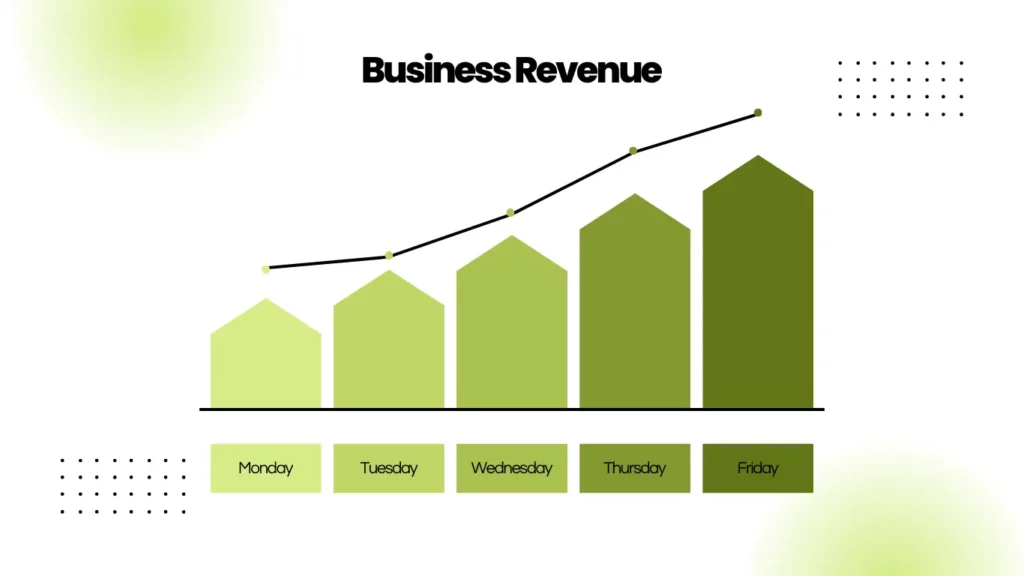

Competitor Analysis
A revenue manager also conducts comp set analysis to outperform competitors.
Firstly, they identify their direct competitors in the location. For example, they won’t analyze mountain cabin listings if they manage luxury STR properties.
Further, evaluating the competitor’s nightly prices, occupancy rates, KPIs, marketing efforts, and positioning allows RMs to spot pricing opportunities or threats.
Distribution Channel & Inventory Management
For revenue managers, inventory means rooms sold. If not booked, a property owner loses earning opportunity. So, RMs ensure the selection of the right mix of distribution channels. These channels include online travel agencies (OTAs), direct booking, and Global Distribution Systems (GDS).
Revenue managers ensure that rooms are available when they are most likely booked at the most profitable rates through pricing offset. Again, they use demand forecasting results to build the distribution strategy across booking channels based on customer segments and market demands.
For instance, they’ll apply minimum length of stay restrictions during the high-demand season.
Thus, their balanced distribution strategy helps minimize underselling or avoid double booking while boosting the rental home’s revenue potential.
Develop Pricing Strategy
A revenue manager’s primary goal is selling an STR property for the best price possible. Hence, they constantly modify the room rates according to shifting market demand.
An ideal dynamic pricing strategy depends on access to external and internal data points. This is where RMs use a high-tech revenue management system like PriceLabs to collect data and develop tailored pricing strategies for different customer segments.
From analyzing booking patterns, comp rates, historical occupancy data, and customer profiles to market segmentation, vacation rental dynamic pricing tools are a one-stop solution for these professionals to create real-time revenue optimization strategies.
Marketing Activities
At this stage, revenue managers collaborate with sales and marketing teams to brainstorm marketing strategies for vacation rentals. The goal is to keep customer flow steady and attract new guests.
Thus, teamwork is essential for revenue managers to thrive in this profession.
Let’s say there are unoccupied nights between bookings, impacting Airbnb’s revenue for a vacation home. The revenue manager will propose discounted offers for short stays to fill gap nights and improve Airbnb rental income.
As Jasper (CEO and co-founder of Get Paid For Your Pad) says on the Live Let Thrive podcast, you won’t book more often if you fail to implement effective marketing campaigns. Even the most innovative pricing strategies will fall flat if they don’t catch the eyes of your potential guests.
Upsell Additional Guest Services
While on vacation, travelers are more likely to be open to spending an extra. Thus, revenue managers plan upselling strategies to enhance guests’ stays.


A skilled revenue manager will thoroughly assess guests’ profiles and preferences to plan an ideal upsell offer. For example:
- Chocolate hampers or a bed and breakfast for couples
- Airport pickup/drop services for business travelers
- Tour guides for a group of friends
This technique improves revenue and builds deeper guest relationships, leading to repeat bookings.
Monitor Revenue Performance
Revenue managers continuously monitor and compare revenue using vacation rental KPIs, including revenue per available room (RevPAR), average daily rate (ADR), Revenue per occupied room (RevPOR), and occupancy rate.
These metrics help them evaluate the STR’s financial health to adjust revenue management strategies accordingly.
What are the Qualities of a Successful Revenue Manager?
You need particular skills to secure a revenue manager job. Let’s check them out.
Data Analysis Skills
It’s a highly analytical role requiring a strong math or statistics foundation. Skilled revenue managers know how to interpret each data source from dashboards to sift through revenue opportunities and setbacks. They should have an analytical mindset to assess different statistics and create a robust vacation rental pricing strategy.
Thus, a dedicated degree or certification course will help prove your qualifications.
Industry Knowledge
A good revenue manager must know the ins and outs of the hospitality and STR industry. Starting with entry-level or administrative opportunities will give you better industry exposure. Besides, make sure to stay up-to-date with broader industry news and trends.
With enough experience and market grasp, you can apply for the revenue manager role.
Technical Expertise
Technology is an integral part of a revenue manager’s daily tasks. Whether it’s PMS, CM, or RMS, you should be able to handle all tools and software seamlessly to become more efficient at your job.
A tech-savvy revenue manager is more than someone comfortable with all the software systems. Instead, you should also be quick to adapt to new technologies.
Communication Skills
Revenue managers don’t work in isolation. As part of their role, they collaborate with many people across different departments to propose revenue optimization strategies, including operations, marketing, and sales.


Thus, effective communication is vital to making informed revenue management decisions that align with business goals.
FAQs
1. What makes a great revenue manager?
A good revenue manager gathers insight from historical data and market trends to maximize profitability for their STR portfolio. Further, effective two-way communication with other teams ensures proper pricing, room management, and distribution plans.
2. What does a revenue management system do?
A revenue management system uses advanced algorithms to provide market insights, historical data, and comp analysis. Revenue managers integrate this software to plan dynamic pricing strategies and marketing campaigns based on demand changes.
3. What are the four pillars of revenue management?
A revenue manager’s critical tasks include analyzing historical data and market trends, forecasting demand, managing inventory, and setting revenue goals.
Final Thoughts
Hiring a revenue manager is necessary in an industry where competition can be fierce and margins slim. A revenue manager’s continuous demand forecasting, performance monitoring, and price optimization are crucial for an STR business’ growth.
These data-driven decision-makers tailor pricing strategies for high and low seasons to maintain a steady flow of bookings year-round.
About PriceLabs
PriceLabs is a revenue management solution for the short-term rental and hospitality industry, founded in 2014 and headquartered in Chicago, IL. Our platform helps individual hosts and hospitality professionals optimize pricing and revenue management, adapting to changing market trends and occupancy levels.
With dynamic pricing, automation rules, and customizations, we manage pricing and minimum-stay restrictions for any portfolio size. Prices are automatically uploaded to preferred channels such as Airbnb, Vrbo, and 100+ property management and channel integrations.
Every day, we price over 400,000+ listings globally across 150+ countries, offering world-class tools like the Base Price Help and Minimum Stay Recommendation Engine. Choose PriceLabs to increase revenue and streamline pricing and revenue management. Sign up for a free trial at pricelabs.co today.


